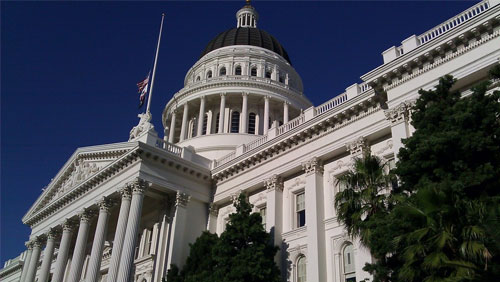Connecticut and New Hampshire are both moving forward with their respective gambling expansion plans. Lawmakers in the two states have been busy trying to get different gambling bills approved and their hard work is now paying off.
 In Connecticut, lawmakers met in special legislative committees on Tuesday to discuss separate bills. The first would authorize a satellite casino in East Windsor that would be co-managed by the Mohegan and the Mashantucket Pequot tribes. The tribes had anticipated approval of the bill and had already selected a name for the new facility, the Tribal Winds Casino.
In Connecticut, lawmakers met in special legislative committees on Tuesday to discuss separate bills. The first would authorize a satellite casino in East Windsor that would be co-managed by the Mohegan and the Mashantucket Pequot tribes. The tribes had anticipated approval of the bill and had already selected a name for the new facility, the Tribal Winds Casino.
A second bill sought to allow a new casino and hotel in Bridgeport. That project was proposed by MGM Resorts and lawmakers in the committee gave the project the green light. Both the Tribal Winds Casino and MGM’s venue are expected to provide thousands of jobs and enhance the state’s economic development. The Mohegan and Mashantucket Pequot tribes expect to generate as much as $75 million in tax revenue for the state.
In New Hampshire, the House has given its thumbs up to legalized sports betting. A vote held on Tuesday resulted a 269-82 decision that will now see the bill head to the Senate for its vote. Certain provisions in the bill, according to House leaders, will most likely be included into the House’s two-year budget proposal for New Hampshire.
The bill authorizes wagers on professional sports games and certain Division I collegiate-level games—any schools in New Hampshire would be off limits to gambling. It also would allow mobile and retail wagers and is expected to produce as much as $7.5 million for the state’s public education system in fiscal year 2021, and $13.5 million two years after that.
Proponents of the bill have supported the belief that legalizing gambling will help diminish illegal gambling in the state, as well as provide additional revenue streams. It will also allow for the creation of a new Council for Responsible Gaming to assist problem gamblers. Foes have argued, however, that legalizing gambling will only perpetuate New Hampshire’s reliance on problematic revenue sources. As the world has seen more than once, “problematic revenue sources” can be used to describe any industry.